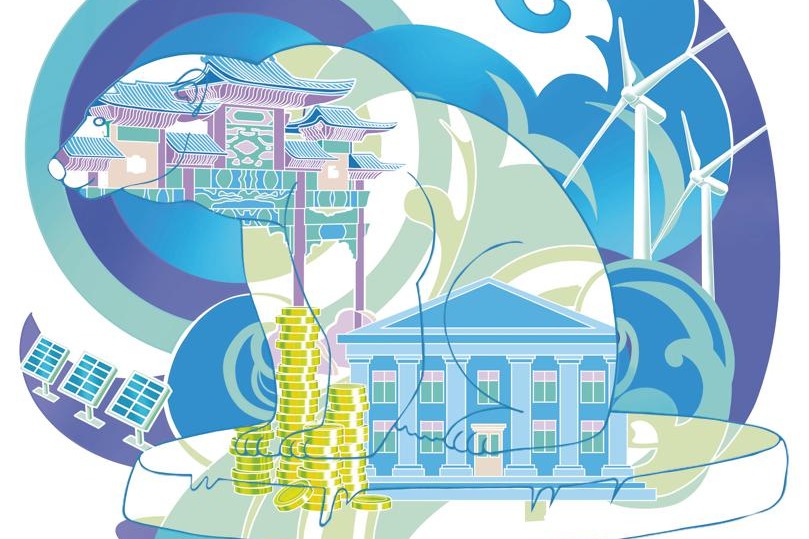Beijing a good and able partner for Latin America's development


China's pursuit of high-quality development has opened up new areas and created new drivers of economic growth, while helping improve global production and fostering an attractive atmosphere for both investors and consumers.
China is a major player in global trade and industry, and its presence and actions at the international level have assumed added importance by offering products at competitive prices for different industries, China has facilitated production in broader markets.
By developing new quality productive forces, China will contribute more to deepen cooperation among countries and help restructure the complex global industry and supply chains. Along with developing new quality productive forces, China has also intensified its research and development activities, which will promote the certification of products with new quality standards and increase patents worldwide.
The development of new quality productive forces will help contain the dominant, oligopolistic and monopolistic positions of some countries and multinational companies in trade and high-tech, which in turn will revitalize the international market.
The products and services that emerge from the development of new quality productive forces will benefit all countries. The development of the global economy has been restricted due to developing countries' dependence on developed nations for advanced technologies. The developed countries own the intellectual property rights of many advanced technologies and are reluctant to share them with developing nations, curbing the latter's development.
However, the development of new quality productive forces faces some challenges, because new quality productive forces are necessarily integrated into global productive matrices, because not all Chinese standards are in line with Western standards. Hence, it is necessary to make them compatible with international standards.
Still, the development of new quality productive forces will propel the development of the Belt and Road Initiative.
This is the 10th year of the proposal to build a China-Latin America community with a shared future. Relations between Latin American countries and China have deepened much more in the past 10 years than in any period in history. There is a lot of interest on both sides to integrate and complement each other, both economically and culturally.
From chambers of commerce and investment platforms to Chinese language teaching centers and institutions promoting cultural exchanges, all sorts of institutions and centers have been opened over the past 10 years, helping further improve Sino-Latin American relations. This is very important because the cultures and traditions of China and Latin American countries are still vastly different.
The goal of Belt and Road projects in Latin America, despite being broad, is mutual benefit. For Latin America, the Belt and Road Initiative is a new phenomenon, although the trade and economic exchanges between the two sides are already substantial.
In Argentina, for example, some very successful ventures in the food industry have been established, even though there is a need to integrate the country's extractive and industrial sectors with those of China.
Latin American countries oscillate between people-centric sovereign programs and neoliberal and colonial policies that ignore the needs of the community and, instead, serve the interests of the market. In many cases, some Latin American governments' decisions have ignored the interests of the people. For instance, many consider Argentine government's decision to not join the expanded BRICS as an irresponsible act, because instead of integrating the country's economy with major emerging market economies, the government chose to isolate it.
The main challenge for Latin American countries is to end their economic dependence on global speculative capital and concentrate on boosting their economies and developing technologies. To do so, they need reliable trading, industrial and technological partners.
Latin America should focus on building a better, fairer world free from poverty, a world where everyone has the opportunity to improve their lives, a world of common prosperity, a world where people are the masters of their destiny. Latin America is rich in resources, sitting on infinite wealth and yet it cannot provide a life of dignity for millions of people.
China is a good partner of Latin America, not least because it can help Latin American countries to equitably distribute the infinite wealth among the people. Until this fact is manifested in a stable, permanent manner and to the satisfaction of the people, it will be difficult for Latin America to overcome the obstacles.
Yet I am optimistic about the future, because I see colleagues from Chinese companies making sincere efforts to improve people's livelihoods and create an atmosphere in which the people can decide their own future.
The author is an economist from the University of Buenos Aires.
The views don't necessarily reflect those of China Daily.
If you have a specific expertise, or would like to share your thought about our stories, then send us your writings at opinion@chinadaily.com.cn, and comment@chinadaily.com.cn.


































